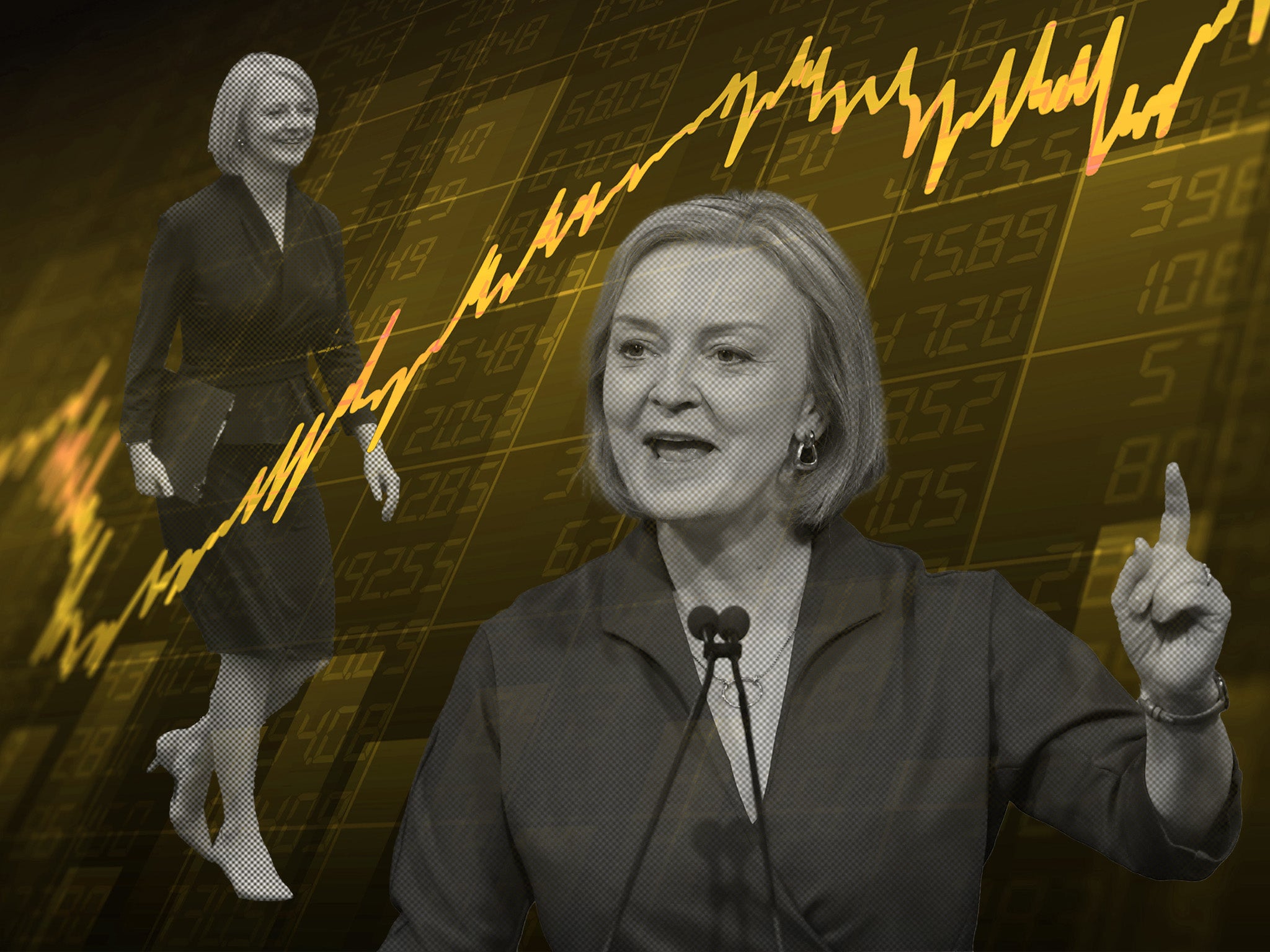Liz Truss’s pro-growth strategy is bold – but it can work
Trussonomics: Can it work? Truss and chancellor Kwasi Kwarteng are promising a fresh start, clearly demarcating themselves from their predecessors, writes Emily Carver


One accusation levelled at the government is that after 12 years of Tory rule, Britain is broken. Inflation is soaring, growth is stagnant, and the NHS is on its knees.
Of course, it should come as little surprise that we are experiencing massive disruption. After a global pandemic and two years of on-off lockdowns, we are not alone in suffering the consequences. Putin’s actions in Ukraine and his weaponisation of energy have left us even more vulnerable.
The dire economic outlook is often blamed on a lack of state intervention. If only the government did more, we’d be the land of milk and honey. In reality, the government’s approach in recent years has been anything but hands-off.
The tax burden is higher than at any time since Clement Attlee’s post-war socialist administration, growth has remained stagnant, and the answer to any environmental or social problem – be it climate change or obesity – has been to ban, nanny, and regulate.
Liz Truss has been consistent in her politics and a bit of a maverick in terms of supporting free market principles. But, having held various cabinet positions under David Cameron, Theresa May and Boris Johnson, is she ready to adopt a radically different approach?
Truss and her chancellor, Kwasi Kwarteng, are promising a fresh start, clearly demarcating themselves from their predecessors. They promise a rejection of “tired economic managerialism” in favour of an unashamedly pro-growth economic strategy.
This is welcome news. If Truss and Kwarteng remain steadfast in their belief that a rising tide lifts all boats, they could propel Britain forwards as a free, prosperous, vibrant nation, while raising living standards across the board.
There is a risk, however, that the prime minister and her chancellor will fall at the first hurdle, with the government poised to announce an energy price freeze, paid for with more borrowing just as interest rates are rising.
High energy prices are undoubtedly catastrophic for many households, but they reflect a tangible shortage in supply and serve a vital role in conveying that information to the market, incentivising greater supply in the medium to long term. The price freeze could distort those signals, kicking the can down the road while insulating big oil and gas companies from new competition.
A better approach, and one more consistent with support already announced, could be to target government money at the consumers in most need, while ensuring that the market is free to act on the price signals, incentivising it to expand supply.
There are, however, positive messages from the new government which has, finally, ended the ban on fracking, and may expedite the expansion of nuclear energy, and relieve burdensome planning regulations which give middle-class nimbys the power to compromise our energy security.
This mentality is what the new government must be driven by: a relentless focus on supply-side reforms. Britain has stagnated because of an obsession with redistributing the pie while being unwilling to undertake reforms to grow said pie.
The new government has some job to rebuke this idea, but there is some cause for optimism.
Read more from our series on ‘Trussonomics: Can it work?’ by clicking here
Truss and Kwarteng have shown that they are willing to address key issues like our dire 0.4 per cent per year productivity growth, with the chancellor signalling that wage-killing measures like corporation tax should be kept low. A reversal of the national insurance hike will also leave more money in working people’s pockets.
Truss has pledged radical changes to “brownfield” planning regulations and has previously made clear her willingness to see homes built on the green belt. With so many young people struggling to buy a home, and with it, a stake in the success of our country, addressing our burdensome planning regime must be a top priority. And, if done right, Truss’ “full-fat freeports” could be transformative for under-served communities.
There is no doubt that the new government has a significant task to get this country growing again after years of stagnation.
To do this, Liz Truss and Kwasi Kwarteng must be bold in their approach and be steadfast in the face of calls to perpetuate the recent consensus that distribution takes precedence over growth. Politics is the art of the possible, but Truss’s conviction could, if acted upon, begin to reverse our high-tax, low-growth declinist approach to the economy.
Emily Carver is head of media at the Institute of Economic Affairs
Join our commenting forum
Join thought-provoking conversations, follow other Independent readers and see their replies
Comments